

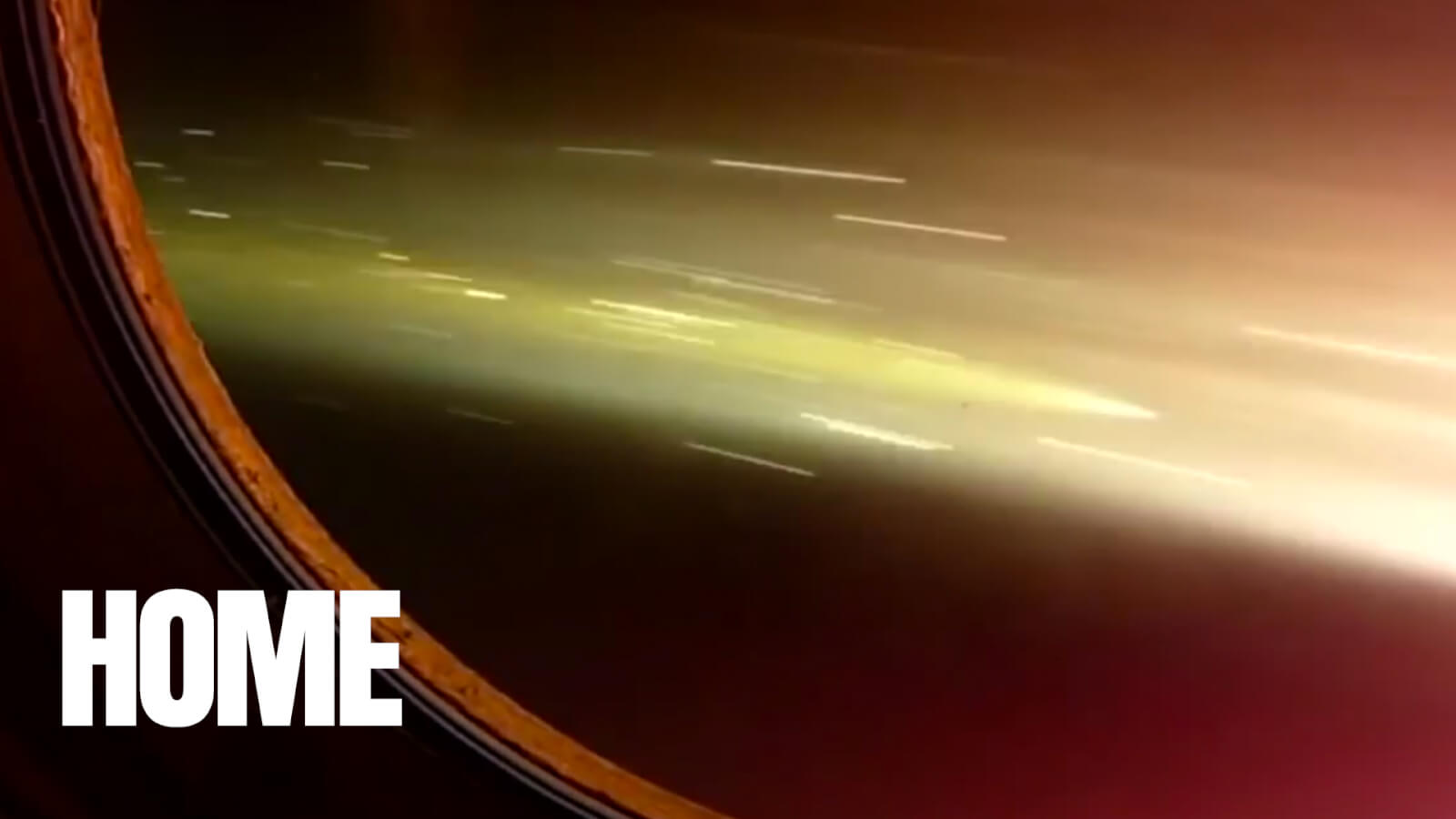
On September 16, 2011, my two Russian crewmates and I hurled through the atmosphere at 5 miles per second (8 kilometers per second) in our Soyuz spacecraft. A couple of hours earlier, we had undocked from the International Space Station after almost six months in Earth-orbit. When we got within the thicker part of the atmosphere, our parachutes opened and slowed our descent to a survivable rate. I used the mirror on the wrist of my spacesuit to watch the Earth rise up to meet us. We impacted the ground harder than anticipated, bouncing, rolling and flipping over. Eventually, our capsule came to rest on its side.
My window pointed down toward the ground. Through it I saw a rock, a flower and a blade of grass. I thought to myself, “I’m home.” Actually, I was in Kazakhstan. In that moment, I realized home was no longer just Houston, Texas, where I live with my family. Home was Earth.
Our definition of “home” has profound implications for how we deal with the many problems and challenges facing our world, especially given the current Syrian refugee crisis. This global crisis is one of the world’s most pressing issues, with millions of lives hanging in the balance.
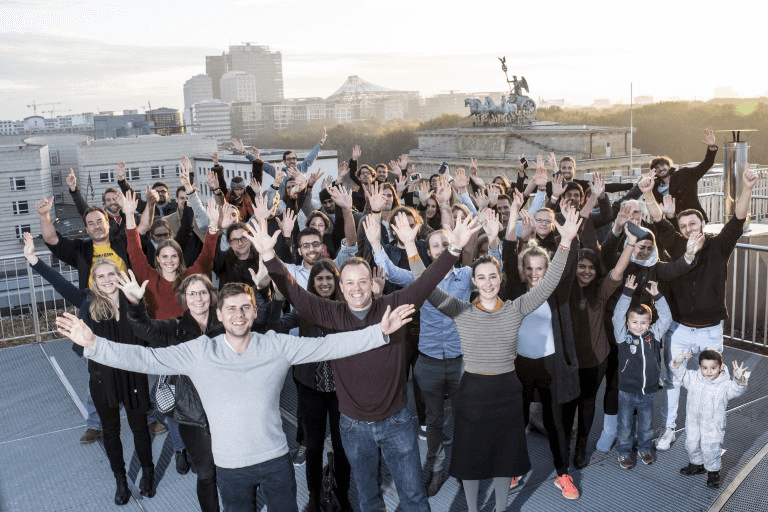
Refugee Action Tank participants take a break for a group photo at the Brandenburg Gate
Every year, I attend the Global Social Business Summit, which was designed by Nobel Peace Laureate Muhammad Yunus to promote the concept of using social business to solve problems. With an invitation from Professor Yunus and Grameen Creative Lab founder Hans Reitz, I led a refugee task force at this year’s summit at the Templehof Airport in Berlin — the site of one of many refugee camps in Europe. Since the focus was on action rather than just thinking or talking about the crisis, we named the task force the “Refugee Action Tank.”
The goal of the Refugee Action Tank was to design social businesses that combine open data and technology to help ease this crisis and provide long-term, financially sustainable solutions to some of the most significant issues refugees are facing.
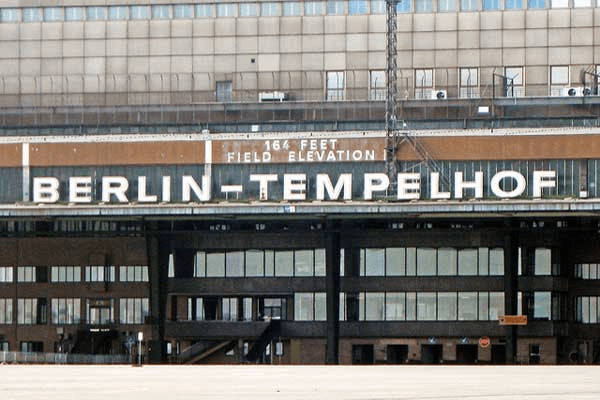
Over four days, a diverse group of approximately 50 experts in the disciplines of refugee care, social business, data management and visualization worked together with refugees. The first step in this process was to define the most pressing problems refugees face.
Specific areas identified included:
After these problem areas were identified, the participants broke into groups to work exclusively on developing solutions to their chosen challenge. Each group took a deep dive into how open data, technology and social business can help adjust the trajectory of this crisis onto a much more positive path. Groups generally spent the first day identifying the problem, the second day evaluating different potential solutions, and the rest of the time refining and honing their chosen solution.
Periodically, each of the groups presented their progress to the larger group for critique and guidance. Social business experts would offer suggestions and examples to help guide the group toward financially sustainable solutions. Emphasis was placed on evaluating existing solutions to see what was working and what wasn’t in order to avoid reinventing the wheel. Solutions addressed the worm’s eye details of specific problems while keeping the bigger, long-term picture in mind. The teams considered how solutions fit within the political, educational, societal and economic puzzle.
At the conclusion of the Global Social Business Summit, each group gave a public presentation of their projects on the main stage at Templehof Airport. After the public presentation, all groups were available to answer questions and enlist the assistance of those gathered. Below is an overview of a few of the most promising ideas that are being implemented:
Recognizing the necessity of including the refugees in the process, SocialProHub is a platform spearheaded by 4onemankind.org, which enables refugees to solve their own challenges. On the platform, refugees can pitch solutions, receive technical feedback from universities and support from organizations, and seek funding from the private sector. What impressed me about this model is it enables bottom-up solutions. It enables those closest to the problem to have a voice in the problem solving process.
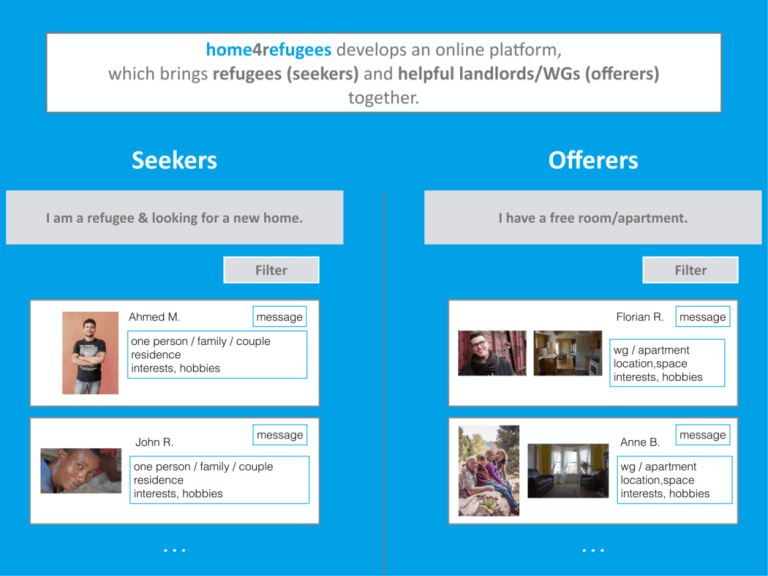
Home4Refugees Landing Page
After refugees reach their long-term location, they often have difficulties finding places to live — even though governments typically subsidize initial rent payments. Many citizens in these locations are willing and have the desire to rent rooms and apartments to refugees. Current city initiatives usually encourage face-to-face introductions between refugees and landlords, which tend to be time-consuming and cannot be scaled to accommodate a large influx of people. Beyond this, data is usually processed and collected manually, and few open online databases exist.
The idea behind Home4Refugees is to use a matching platform to empower both sides to find one another, akin to Airbnb. Through this matching platform, refugees can post their housing requests, and landlords can post their housing offers. The posts are publicly displayed on the platform and can be filtered according to preference. The platform also enables both sides to get in contact with one another. It is set to go online in January of 2016. This solution has potential to scale, enabling many refugees to find new homes.
Similar to the issue of housing, financial services are not available to refugees unless they have a permanent address. To bridge the gap created by language barriers, cultural differences, and lack of information, “FinLink” was developed. This solution employs refugees as agents to help other refugees access necessary financial services. Banks can then outsource the burdensome account opening process, allowing them to focus on their core revenue generating operations.
Banks find this an attractive business opportunity to tap an unreached market of customers with future revenue generating potential. This overcomes bureaucracy, enabling refugees to have access to financial services, which is a critical step toward becoming self-sufficient.
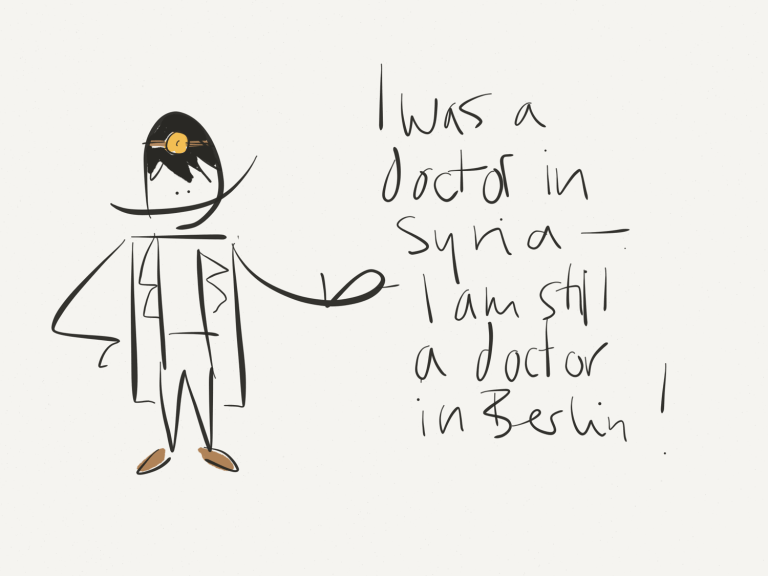
I’m Ready works to address unemployment faced by refugees when they arrive in their new host country. Refugees often enter with specific specialized skills and experience, but without proof of any certifications. When refugees are ready to enter their new local job market, I’m Readyoffers refugees the possibility to undergo coaching and mentoring. Their skills will then be evaluated and confirmed, and I’m Ready will provide a proof of qualification, which is a professionally accepted, standardized entryway to their respective industry. This solution enables refugees to integrate into and contribute to the communities they are joining.
Every day, refugees are drowning in the sea between Turkey and Greece.Stories of Lives uses the unwanted items that are left behind on this often perilous trek such as life jackets, blankets or tents to produce upcycled products. With the profits, they plan to finance more rescue boats in the Aegean Sea between Turkey and Greece.
Stories of Lives has experience in humanitarian aid and social business but still needs connection to pre-financing networks, nautical companies and upcycling communities. Their philosophy is, “Nobody needs to drown on their way into a safer life.” This project has the potential to solve many problems at once. The products not only raise funds to save lives, but also bring awareness to the safety issues refugees face and provide economic development to the refugee community.
The solutions described above represent only a drop in the bucket of what poured forth during this four-day process. The teams will continue to develop the initiatives, and an update of the progress will be presented at the second Refugee Action Tank at the European Social Business Forum in Utrecht, Netherlands, on April 12, 2016.
Bearing witness to this process reaffirmed my belief that when people are enabled to help, they will. The Refugee Action Tank embraced the reality that we are all riding through the Universe together on this spaceship we call Earth. There are no passengers on Spaceship Earth — only crewmates. We all have a responsibility to mind the ship and take care of our fellow crewmates.
To get involved with a specific project, contact Isabelle Mohr (info@4onemankind.org) of SocialProHub; Yolanda Schmidtke (info@home4refugees.org) of Home4Refugees; Debra Kelsau (debra.kelsall@gs.com) of FinLink; Maria Gross (mariagross@me.com) of Stories of Lives.